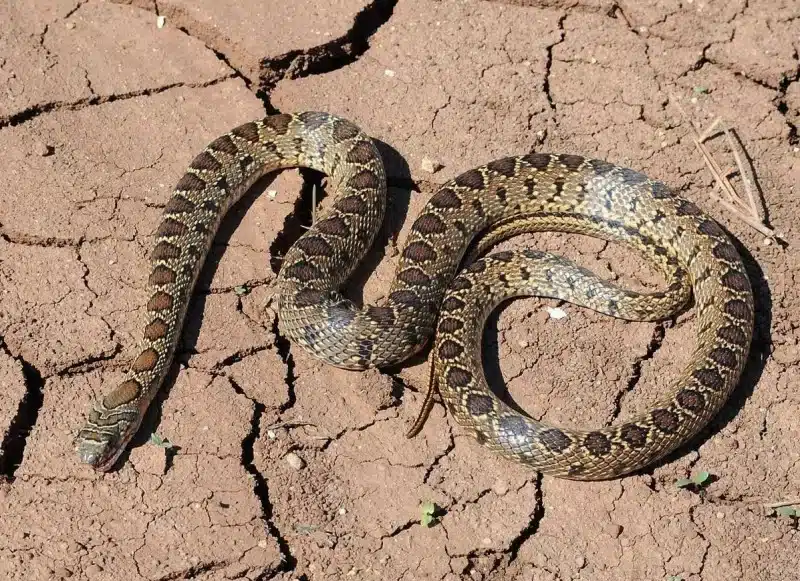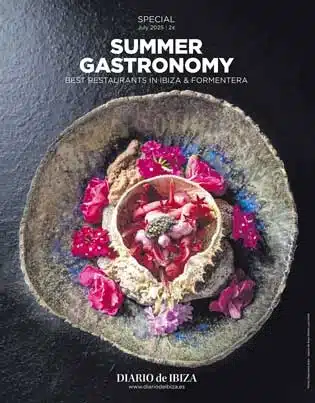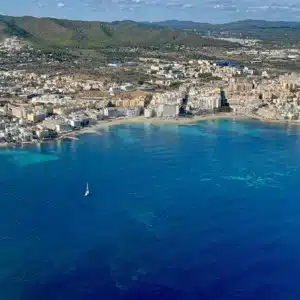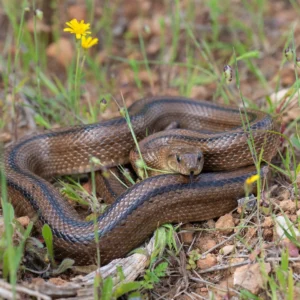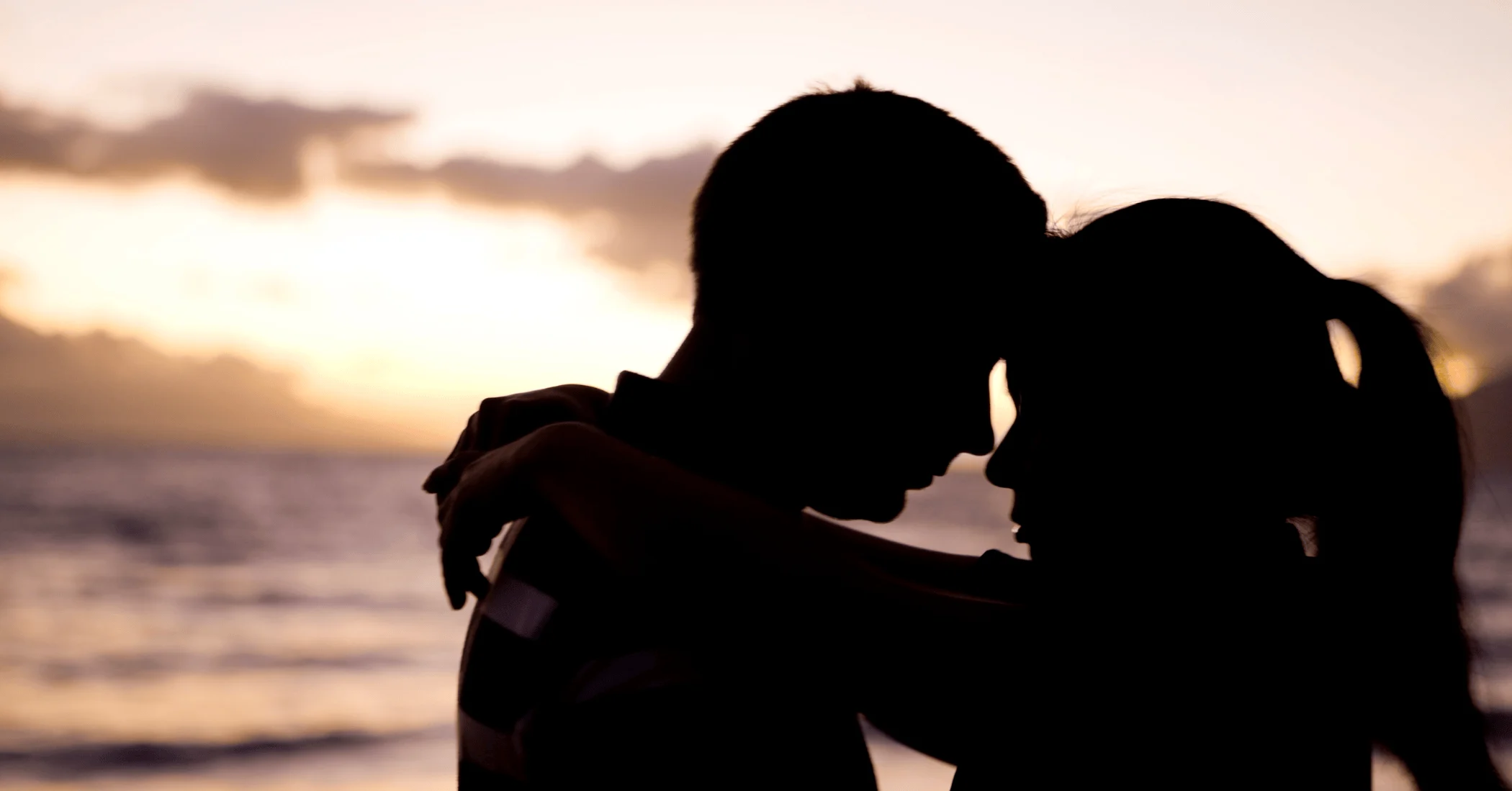If you have come across headlines about snakes in Ibiza and are wondering whether to cancel your summer plans, rest assured, there is no real danger. Despite sensationalist reports from some media outlets in the United Kingdom and Italy, the reality on the ground is far less dramatic.
In recent months, the presence of snakes on the island has triggered concern among both residents and visitors. However, local experts and environmental volunteers are clear: while these reptiles may pose a threat to the island’s ecosystem, they are not dangerous to humans.
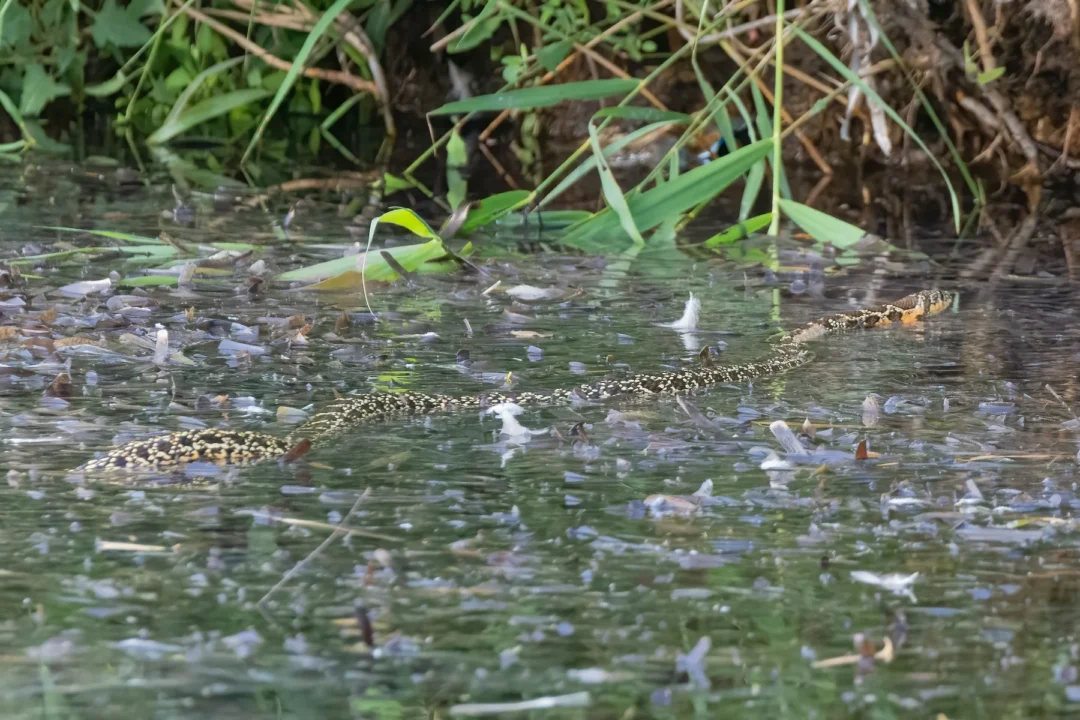
What kind of snakes are found in Ibiza?
The main species behind the recent headlines is the horseshoe whip snake (Hemorrhois hippocrepis). This non-venomous snake arrived in Ibiza around two decades ago, likely through shipments of olive trees or construction materials from mainland Spain. Since then, the species has spread across various areas of the island, including Formentera.
Local authorities and environmental groups have implemented capture and control programmes to contain the population and protect native species, particularly the endangered endemic lizard of the Pityusic Islands. These snakes are active hunters, but their primary prey is small reptiles, not humans.
What do the experts say?
To separate fact from fiction, YouTuber Dwayne Muffin recently published a video featuring Dean Gallagher, a volunteer who participates in snake monitoring and removal efforts. In the video, Gallagher handles a horseshoe whip snake and uses it as a real-time example to demonstrate that it does not pose a threat to people.
“You can tell it is not venomous just by looking at its eyes, they are round”, Gallagher explains. “If you open its mouth, it does not try to bite. Its teeth are tiny and curved inward like Velcro hooks. They are designed to catch prey, not to attack people”.
Gallagher goes on to say that fears among some tourists are exaggerated. “Snakes are everywhere—even in England—and many there are far more dangerous than these. Honestly, the worst that could happen is a small scratch”.
In the rare event of a bite, the recommended course of action is simple: wash the area with warm water and soap, apply some alcohol if desired, and seek medical advice if an allergic reaction occurs. There is no venom to worry about.
How to react if you encounter a snake
Although not aggressive, the horseshoe whip snake may bite if it feels threatened. This is a natural defence mechanism shared by many animals. Gallagher advises that if you see a snake, the best response is to remain still and allow it to pass.
“If it feels cornered, it may back away and make a hissing sound as a warning”, he adds. “But it is far more afraid of you than you are of it”.
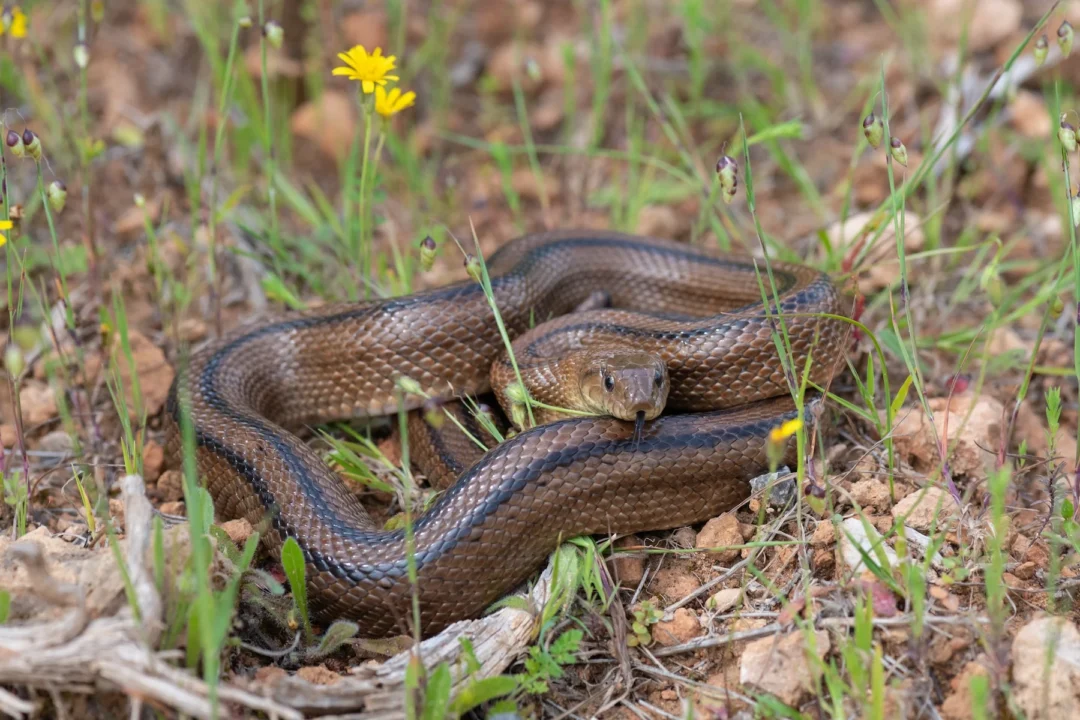
Spain’s environmental protection unit, Seprona, offers a practical reminder: in the unlikely event that a snake does bite and you suspect it lost a tooth during the incident, go to a hospital. Doctors may examine the snake’s dental structure to ensure that no tooth remains embedded in the wound.
A real concern: impact on biodiversity, not tourism
While these snakes are not dangerous to humans, they do pose a significant threat to local biodiversity. The endemic Ibiza wall lizard is under pressure due to predation by the invasive species, prompting urgent ecological interventions. That said, the island’s authorities are focused on conservation efforts, not on warning tourists.
If you are visiting Ibiza or Formentera this season, you are highly unlikely to even spot a snake, let alone be harmed by one. The reptiles are shy, avoid populated areas, and typically dwell in rural environments such as forests and rocky outcrops.
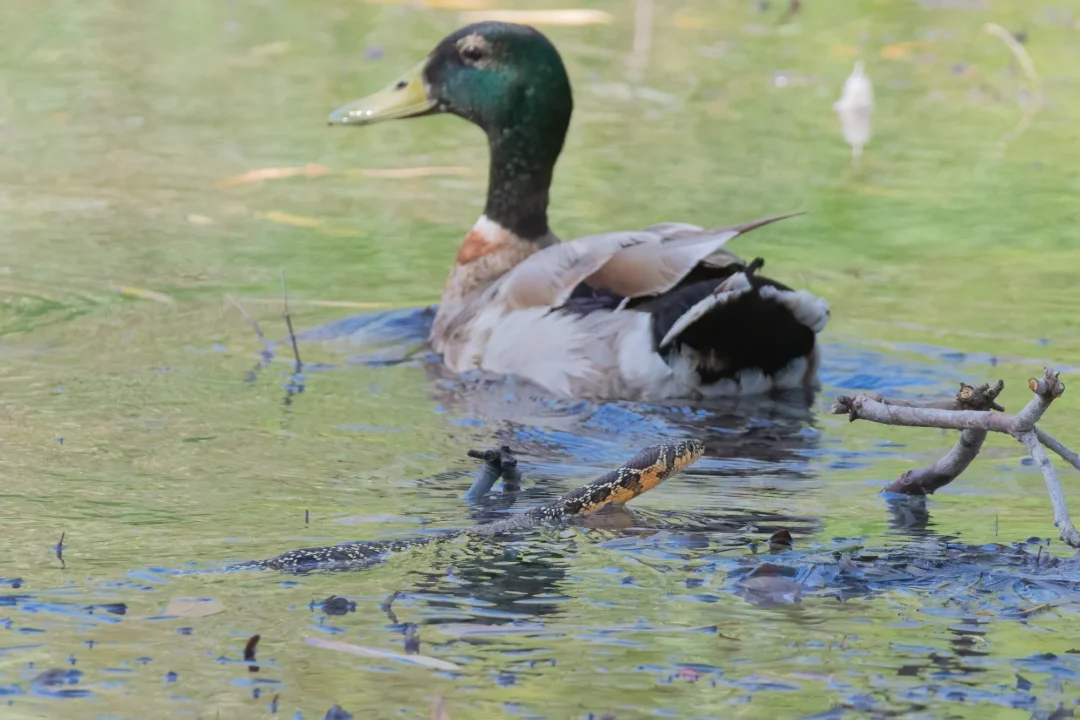
No reason to cancel your trip
In short, snakes are not a valid reason to avoid travelling to Ibiza. Visitors should be aware, but not alarmed. The island remains one of the safest and most beautiful destinations in the Mediterranean, known for its pristine beaches, rich cultural heritage, and vibrant nightlife.
The snakes you may have read about are part of a complex ecological challenge, not a safety concern for holidaymakers. If you see one during your stay, consider it a rare glimpse of wildlife, just remember to keep your distance and let nature do its thing.
So pack your bags with confidence. Whether you are coming for the beach clubs, the sunsets, or the local cuisine, Ibiza continues to offer an unforgettable and safe holiday experience.
